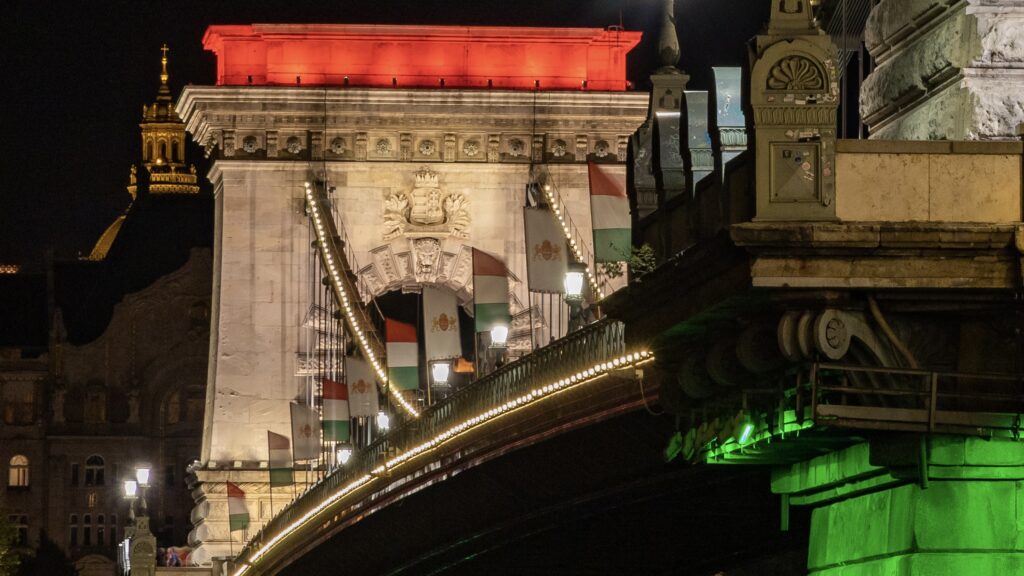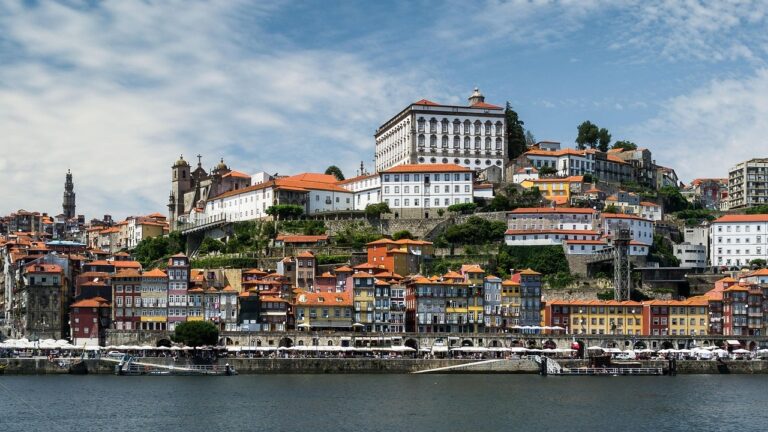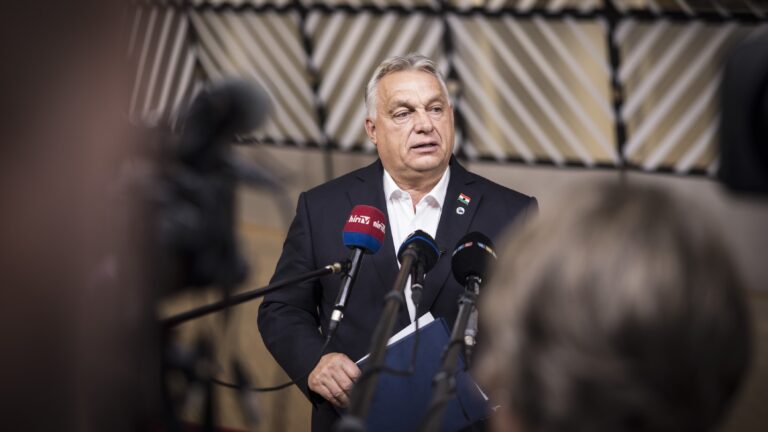Tomohiko Taniguchi is a Distinguished Fellow of the Ludovika Public Diplomacy Hub, President of Nippon Kaigi, and former Special Advisor to PM Shinzo Abe from 2013 to 2020. He holds an LLB in Law from the University of Tokyo and a PhD in National Security from Takushoku University. After working for the Japanese business weekly magazine Nikkei Business for about 20 years, he joined the Ministry of Foreign Affairs in 2005 and became Deputy Press Secretary and Deputy Secretary-General for Public Diplomacy. He has authored or co-authored more than ten books on international affairs, and he is a Specially Appointed Professor at the University of Tsukuba and a special advisor to the Fujitsu Future Studies Center.
***
Within a two-week time frame, your prime minister and my prime minister met the leader of the Western world, Donald Trump. Can you explain the significance of the strategic relationship between Japan and the US?
Japan is in a neighbourhood that you shouldn’t envy, directly faced with Russia, North Korea, and China, all of which are nuclear-armed, undemocratic states, openly hostile to Japan. So it’s most important for any acting leader of Japan to maintain a good rapport with someone who just happens to be in the highest office of the United States. With that idea, the newly elected prime minister of Japan, Sanae Takaichi, I think, has done a great job in cementing already good relations with the United States even further.
And how do you see the Hungarian–American relationship? Because we just saw Viktor Orbán coming back from Washington, and that was a triumphant return. What was your impression?
There was one single individual in Japan who was very much pleased to see that. And that was me.
Why?
Saying that, from a broader perspective, there is a cultural struggle, some say a war, going on between common sense and woke, and when it comes to common sense, President Trump always likes those people who are on the same page. Look at President Milei of Argentina and Prime Minister Orbán in Hungary. I had always thought, before the bilateral meeting took place, that President Trump would be in favour of Viktor Orbán. So my hypothesis was proven correct.
‘There is a cultural struggle, some say a war, going on between common sense and woke’
You mentioned woke. Is woke a big problem in Japan?
Honestly speaking, the word ‘woke’ has not entered the Japanese lexicon. But instead, a lot of Japanese companies subscribed to the idea of DEI, which stands for diversity, equity and inclusiveness. Diversity had long been viewed as the most important value that Japanese companies had to follow, and that’s been getting a second look, and the second presidency of Donald Trump has been a very important factor. Diversity may be important, but what’s more important is to maintain unity, cohesiveness and tranquillity of the society, and in that sense, Hungary has been exemplary in many ways.
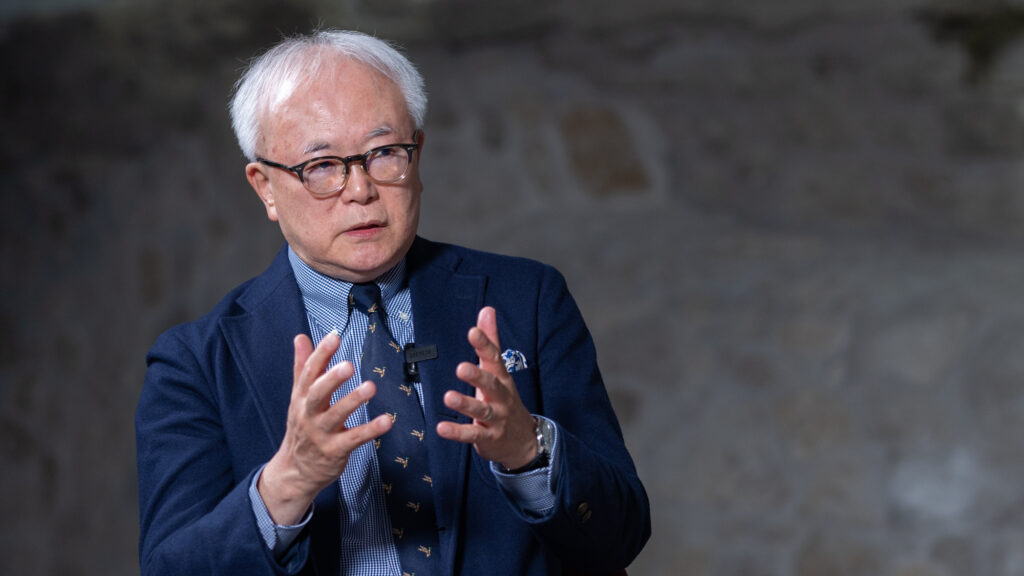
Are you thinking of the Hungarian Constitution as an example, or something else?
Well, you are paying a lump sum of money every day to Brussels because you have chosen to comply with no rule when it comes to regulating the influx of refugees and so on. It is a high price, but you pay that price in order to maintain the unity and cohesiveness of your society. And in that sense, Hungary has been telling something very important to the rest of Europe, but to the rest of the world as well.
You have a very strict, traditional society. Old habits, family values, and codes of behaviour at the workplace. Yes, Tokyo is a multicultural city, but in the countryside, life is very traditional. Can you explain how deeply the woke culture has entered your society?
Comparatively speaking, you are absolutely correct in saying that Japan is more of a country that is homogeneous and has maintained social cohesiveness, but ironically, because of that long-standing tradition, the changes that have taken place in Japan have gained more attraction from among the Japanese people. What’s important is to maintain the gradual, stable change, not an acute and rapid one, and something that’s happening in Japan shows rapidity, acuteness, and abruptness, which has caused concerns among the Japanese.
‘In that sense, Hungary has been telling something very important to the rest of Europe’
There has been a pocket of Kurdish population next to Tokyo, and that’s been talked about very frequently on social media. That’s one phenomenon to show that a lot of people have become anxious about this because of the abruptness and acuteness of the changes.
We share some common values and interests, like the importance of the American connection strategically, the importance of being a sovereign country, the traditional values of life, and the migration policy. What kind of problems does Japan have with migration?
The new prime minister has taken office with a pledge that she is going to have a new portfolio overseeing Japanese immigration policy. And she singled out the fact that Japanese real estate, property can be bought not only by residents, but even by visitors from abroad, whereas it is impossible for the Japanese to do the same in China. So reciprocity is something that the new prime minister is looking at seriously. There have not been any new regulations implemented because those new regulations would need new legislative bills, and the new prime minister must look primarily at bread-and-butter issues before tackling those issues. But a special committee has been established, putting together experts and economists to look at what new regulations would be desirable.
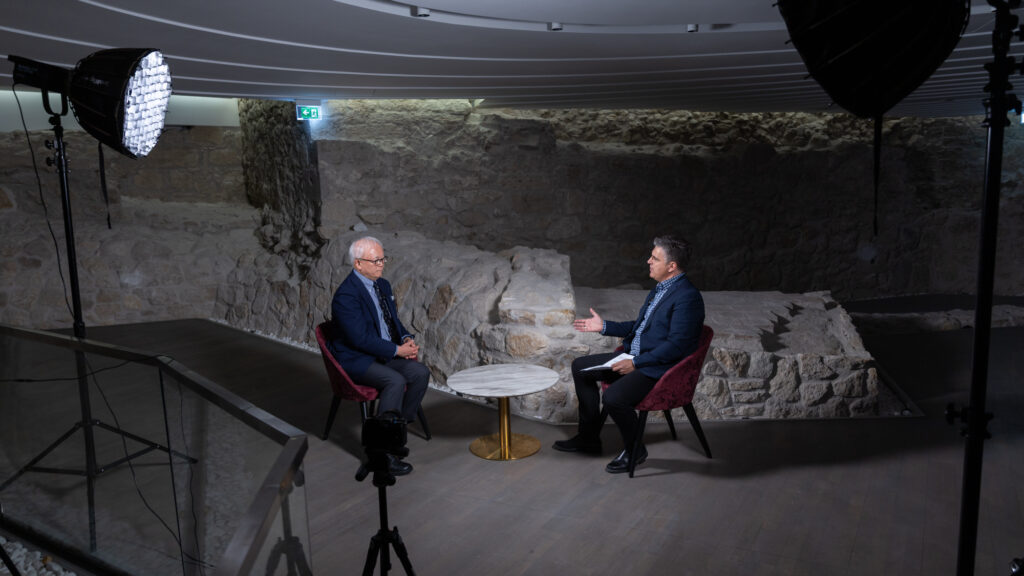
You mentioned China. We know that there is a new world order coming, and China has become a dominant power in Asia. What does Japan do to counterbalance the influence of China?
Broadly speaking, there are two options for the future of Japan: either you succumb to the influence of the Chinese, or you stay as independent as possible going forward. And I see that the second option is the only viable option to be taken by the Japanese, because only by taking the second option can you preserve continuity and consistency of your culture. So, in order to make sure that the dominance of China doesn’t happen, you must build your defence capabilities, you must invest in your alliance partnerships with the United States, and you must broaden your partnership network by inviting countries such as Australia and the UK to join forces in preserving the status quo in the region.
Japan is participating in the Quad cooperation. It has a strategy called FOIP, which is about trying to get India into the cooperation of the Pacific states and to distance it from China. The Abe cabinet also tried to separate China from Russia while maintaining a good trade relationship with China, but I think the world is going in a different direction. Is Japan in trouble?
If you look at the closeness between Russia and China, I think it’s going to be very difficult for Japan to alienate Russia from China. Shinzo Abe met Vladimir Putin as many as 28 times with a single-minded focus on making the northern part of Japan more stable geographically and geopolitically by making a final peace treaty with Russia. The FOIP strategy is pretty much there, and with a renewed focus by the new prime minister. FOIP is about the free and open Indo-Pacific region. It’s a rhetorical expression because it assumes that there is a country that wishes to make the Indo-Pacific region unfree and closed. So we must jointly work with like-minded democratic maritime nations, like Australia, India, the Philippines, and the United States. So that way, you could continue sending an undeniable political signal to Xi Jinping.
‘I think it’s going to be very difficult for Japan to alienate Russia from China’
What about India?
India is about the future. It has outnumbered the Chinese population. It’s the most populous country in the world, and its population is much younger than China’s. It promises to be probably the biggest consumer market, and along the way, it’s going to be an even prouder nation. So it’s much better for countries like Japan to align more fully with India now. It’s a long-term investment. Short term, there will be hiccups and zigging and zagging, but long term, there is a commitment on the part of Japan to cement this bilateral relationship even further.
I guess nobody expects a war in the Pacific, not even about Taiwan. But the Japanese government prepares for the worst scenario as well. There’s a new national security strategy created in 2022, and its goal is to make the defence capabilities sufficient to defend the country independently by 2027. Will you be ready by then?
Due to what’s been observed in the war between Russia and Ukraine, there has been a renewed focus on whether or not it is sufficient for Japan to pursue that goal. So the new administration is determined to accelerate the process. Sanae Takaichi, the new prime minister, has made a pledge that in Japan, within this fiscal year that will end by next March, the Japanese defence budget must be increased to 2 per cent vis-à-vis GDP. She is determined to increase it even more, and with the introduction of new unmanned technologies such as drones and so on, it’s on its way. When it comes to the cyber area, Japan is vulnerable to attacks, and they have to work hard on that. Takaichi is also proposing to build an intelligence society, an intelligence organization to gather critical intelligence from the rest of the world.
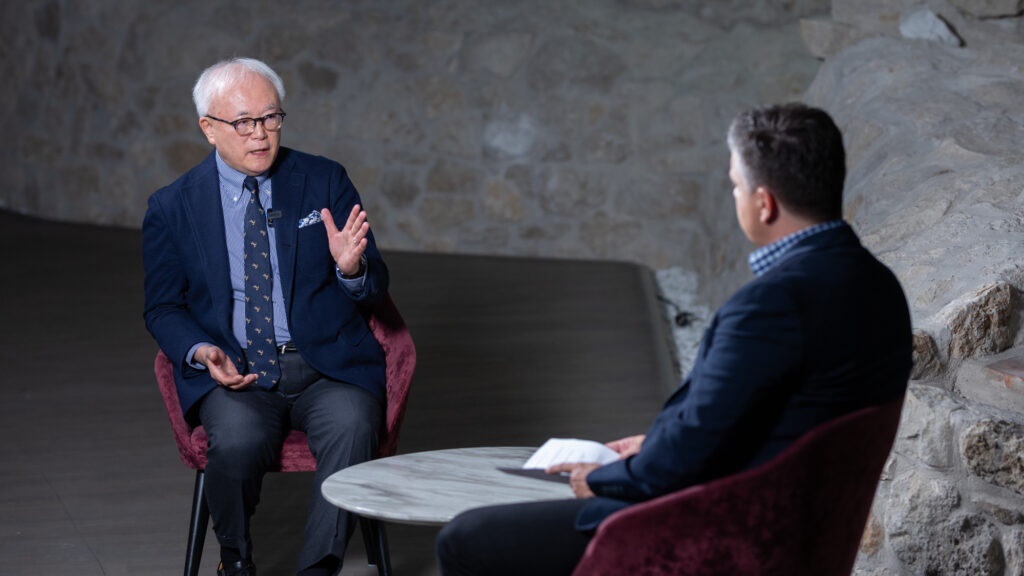
Takaichi is the first female prime minister in Japan’s history. There are high expectations for her. What achievements do you expect from her?
She has done a rocket start, better than most pundits expected. But the prime minister of Japan is known to be not long-lasting. So the first and the second most important tasks for her are to stay in office and to continue delivering some of the most important policy agendas, among which the bread-and-butter issue is always important. Only by delivering on that front can you collect political capital, and you can use that political capital to win the next elections. If you’re looking at Xi Jinping, he is determined to stay in office as long as he lives. In Japan, you must build your own political capital. It’s easy to talk about it, but difficult to act on it in Japan.
She’s a follower of Mr Abe’s policies. In what way?
Well, in many ways. When it comes to the importance of traditional values, when it comes to maintaining conservative agendas, Shinzo Abe and Sanae Takaichi are on exactly the same page. And also when it comes to the salience of Taiwan, when it comes to the importance of national security, they share the same views.
Finally, about the Japanese–Hungarian relationship. The last prime ministerial meeting happened back in 2019 between Mr Abe and Mr Orbán. Does Japan plan to hold another high-level meeting? If not, what is the reason for that? Isn’t Hungary economically and politically important for Japan?
What I should say is that Prime Minister Takaichi must decide for herself which country to visit and which leader to meet. It is not something that diplomats or bureaucrats in the foreign ministry can propose to the prime minister. When it comes to choosing which country she should go, which leader she should meet, it is up to Miss Takaichi, so I would very much hope that Miss Takaichi should meet Orbán and share their world outlook, because they will find much in common between them when it comes to the importance of social integrity, cultural integrity, when it comes to maintaining identity—those values are in common between the two. And I think Takaichi would find it very much encouraging to see someone like Orbán who is on the same wavelength in many respects.
‘I would very much hope that Miss Takaichi should meet Orbán and share their world outlook’
I’m asking the same question, but not from the view of the political leaders, but from the view of the companies. The Chinese invest in and trade with Hungary, using it as a hub for reaching the European market. However, Japanese companies are a bit reluctant to invest in Hungary. What is the reason?
Those Chinese companies are investing in Hungary not necessarily only because of their economic calculations, but because the China–Hungary link appears to shake the entire European chain. So the Chinese are concentrating their attentions on that link Hungary represents in the European chain. Those political motivations do not exist on the part of the Japanese companies. However, if you can build a very good connection between the two individual leaders, Orbán and Takaichi, that would have a lasting effect on the thinking processes of the Japanese business executives, and vice versa. So I hope this process will begin with very good meetings that Orbán and Takaichi should and could have.
Watch the full podcast below:
Can the Indo-Pacific be free and open? | Tomohiko Taniguchi on Danube Lectures
Listen on Spotify: https://open.spotify.com/episode/2iJFfmTagbKsJPesiB1w75?si=QkTnfgATTpGG12UctnRe9g 0:00 – Introduction 1:05 – What is the significance of the strategic relations between Japan and the U.S.? 2:07 – What is the nature of the relationship between Hungary and the U.S.? 3:26 – Is woke a significant problem in Japan?
Related articles:




